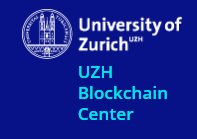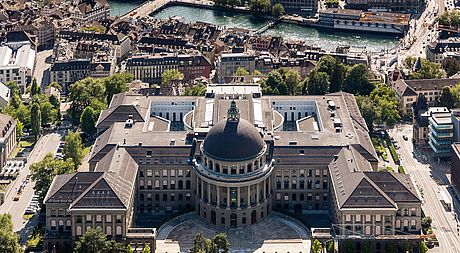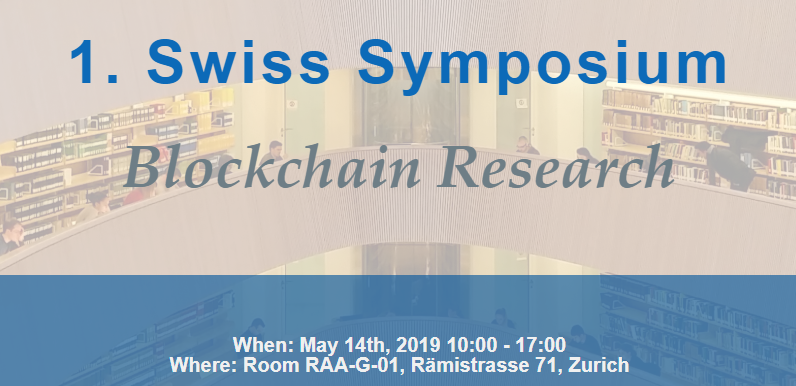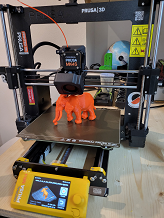
- Details
Docker is a light weight virtualization technology where applications run in containers and basically only file system and network are virtualized. One Linux kernel runs all containers, making a compromise between speed (much faster than in usual virtualization) and isolation (less isolated than in usual virtualization).
We are implementing and running Docker on the Computational Cluster: we installed a local registry loaded with many images: one includes Tensorflow optimized for multiple GPUs suitable for Deep Learning tasks, several Boinc Clients, one dockerized Deltasql instance and other images like Portainer to support cluster management.

- Details

We were at a crypto conference in St. Moritz on July 18, 2019. It was organized by Nicolo Stöhr, CEO of Crypto Finance Conference AG. He gave first a talk of the benefit of Bitcoin, especially decentralization.
Luka Müller of MME gave a talk on tokens and how they can bind customers with incentives, in particular he spoke of the GURU token used by tourists in Flims/Laax region.
Ralf Glabisching of Inacta gave a talk on how hotels can introduce Bitcoin payments as ways to advertise their presence in a worldwide fashion.
Q&A sessions after each talk allowed people to ask questions. Overall, there were honest answers to people expressing criticism or concerns.
The well organized conference was rounded by a rich aperitif at the end!

- Details
The symposium was organized by UZH blockchain center, it included free entrance, dinner and coffee, quite unusual for a Blockchain conference these days! The talks were all at academic level and went deep into issues and potential of Blockchain use.
The most interesting speech in our opinion was by Prof Bryan Ford of Dedis at EPFL, who talked about Proof of Personhood with people physically walking in a room and receiving some sort of digital token. He also talked about a way to solve Bitcoin scalability issues by using Omniledger with sharding.
Dr. Artur Gervais gave a talk on off the chain transactions, in particular the Lightning network.
Michael Lustenberger (ZHAW) gave a talk on applied research to manage documents and certification of pharmaceuticals on Ethereum. Dr. Massimo Morini spoke on the importance of smart contracts to reduce settlement risk and speed up settlement procedures.
Other featured speakers included:
Prof. Aleksander Berentsen, author of Book in German "Bitcoin, Blockchain and Kryptoassets"
Prof. Roger Wattenhofer, from Distributed Computing Group at ETH Zürich

- Details

The conference opened with a talk of professor Dan Jacobson about investigating genetic architectures. His work was awarded with the Gordon Bell Prize 2018. His scientific team was the first to break the Exaop barrier on the Summit supercomputer (2.36 Exaops) which is currently rated at 200 Teraflop on the Top500 list. Dan submitted an entry for the Gordon Bell Prize 2019 about climates on Earth and his team is thinking on how to apply his research on other planets.
There were lot of interesting talks in the 3 days of conference, in up to 8 parallel sessions from 08:00 up to 19:50 and there were 428 attendants.
Main scientific applications were in the domains of climate and weather simulation, biology, high energy particle physics, chemistry and astrophysics.
Trilinos is still an important part of the software stack for High Performance Computing, the latest developments were addressed in the talks of Michael Heroux.
The Swiss National Supercomputing Center (CSCS) is developing open source software like Gridtools and Stella used in the Meteoswiss weather prediction models.
The general impression is that the supercomputing field is advancing fast thanks to the technological advances made in graphic cards and FPGAs. But there is the need to standardize programming languages and to provide drivers and software layers for all the different underlying architectures.
Next big revolution could come from photonics on chips to interconnect much faster the different computer components.

- Details
deep space computing staff will attend the "First Swiss Symposium on Blockchain Research" which will be held at Uni Zürich on 14 of May 2019 between 10:00 and 17:00.
Page 3 of 4







